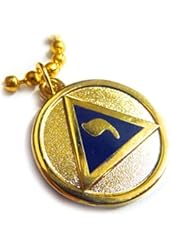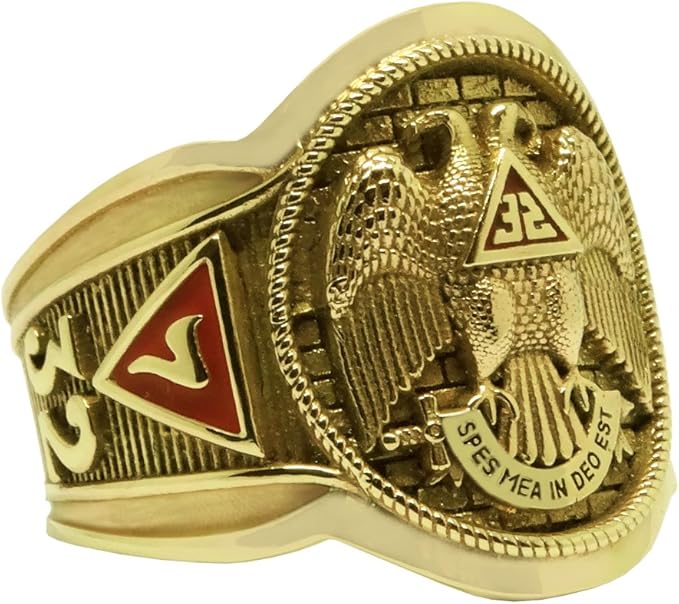The world of Freemasonry is steeped in history, symbolism, and a unique hierarchy of degrees that reflect the moral and philosophical teachings of the organization. Among these degrees, the 14th Degree, known as the Grand Elect, holds a significant place in the Scottish Rite, one of the most prominent branches of Freemasonry. This article delves into the role of the 14th Degree Grand Elect, exploring its origins, symbolism, and the moral teachings that define its purpose within Masonic tradition.
Understanding the Scottish Rite and its Degrees

The Scottish Rite is one of the several branches of Freemasonry, characterized by its system of 33 degrees, which provide a deeper understanding of Masonic principles and moral teachings. The 14th Degree is particularly significant as it represents a blend of spiritual enlightenment and personal responsibility.
Historical Context of the 14th Degree
The 14th Degree, also known as the Grand Elect, was established in the early 18th century as part of the Scottish Rite’s development. This degree emphasizes the importance of the search for truth and the individual’s commitment to the principles of Freemasonry.
Evolution of the Degree
- Origins: The 14th Degree was formally recognized in 1801 in the United States, though its roots can be traced back to earlier Masonic practices in Europe.
- Adoption: The degree was adopted by various Masonic jurisdictions, each adding its unique interpretation and rituals.
- Modern Significance: Today, it serves as a bridge between the foundational degrees and the higher degrees, highlighting the journey of self-discovery and moral integrity.
The Symbolism of the 14th Degree
Symbolism is a crucial aspect of Masonic teachings, and the 14th Degree is rich with symbols that convey deeper meanings. Understanding these symbols can provide insight into the teachings and values promoted by this degree.
Key Symbols in the 14th Degree
- The Sword: Represents the defense of truth and justice, symbolizing the member’s duty to uphold Masonic principles.
- The Crown: Signifies the sovereignty of the individual over their own moral and ethical decisions.
- The Aletheia (Truth): This symbol emphasizes the search for truth as an essential pursuit in life.
Moral Teachings of the 14th Degree
At its core, the 14th Degree is about moral integrity and the responsibility that comes with knowledge. Members of this degree are encouraged to reflect on their actions and their impact on society, cultivating a sense of duty and service.
Core Values and Lessons

- Integrity: Members are urged to embody honesty in their personal and professional lives.
- Service: The importance of serving others and contributing to the betterment of society is a key lesson.
- Philosophical Inquiry: Members are encouraged to engage in philosophical discussions, seeking truth and wisdom through dialogue.
Rituals and Ceremonies Associated with the 14th Degree
The rituals associated with the 14th Degree are designed to reinforce its teachings and symbolize the member’s commitment to the Masonic ideals. These ceremonies are often elaborate and filled with rich symbolism.
Key Ritual Components
- Initiation Ceremony: New members undergo a ritual that emphasizes their commitment to truth and integrity.
- Rehearsal of Teachings: Members participate in discussions and reenactments of key lessons from the degree.
- Community Engagement: Many lodges organize community service events as part of their commitment to the teachings of the degree.
The Impact of the 14th Degree on Personal Development

Advancement to the 14th Degree often marks a significant moment of personal growth for Freemasons. It challenges individuals to reflect on their life choices and encourages a commitment to continual self-improvement.
Case Studies of Transformation
Many members of the Scottish Rite report transformative experiences after attaining the 14th Degree. These transformations often manifest in various ways:
- Enhanced Leadership Skills: Members often find themselves taking on more leadership roles within their communities.
- Stronger Ethical Framework: The teachings of the 14th Degree help individuals develop a more robust ethical framework, influencing their decision-making.
- Increased Philanthropic Involvement: Many members become more involved in charitable organizations and community service, embodying the values of the degree.
The Global Influence of the 14th Degree

The teachings and practices of the 14th Degree Grand Elect extend beyond individual lodges. They contribute to the global Masonic community, fostering connections and shared values among Freemasons worldwide.
International Perspectives on the 14th Degree

- Universal Themes: Common themes of truth, integrity, and service resonate across different cultures within the Masonic fraternity.
- Inter-Jurisdictional Connections: Many lodges engage in cross-jurisdictional activities that promote understanding and fellowship among Masons from diverse backgrounds.
- Global Philanthropy: The 14th Degree encourages members to participate in international charitable initiatives, reinforcing the importance of service on a global scale.
Conclusion: The Lasting Legacy of the 14th Degree Grand Elect

The 14th Degree Grand Elect plays a vital role in Masonic tradition, embodying the principles of truth, integrity, and personal responsibility. Through its rich symbolism, moral teachings, and impactful rituals, this degree encourages members to engage in a lifelong journey of self-discovery and service. As Freemasonry continues to adapt to the modern world, the values instilled by the 14th Degree remain timeless, fostering a commitment to ethical living and community engagement among Freemasons globally. By embracing the lessons of the Grand Elect, individuals not only enrich their own lives but contribute to the betterment of society as a whole.